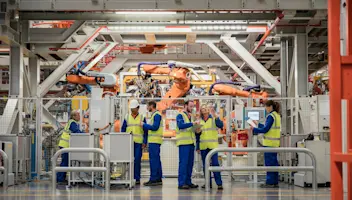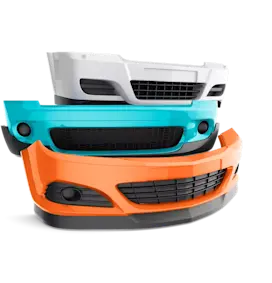Selecting A Discrete Manufacturing ERP: The Top 6 Factors To Consider
Selecting A Discrete Manufacturing ERP: The Top 6 Factors To Consider
Selecting A Discrete Manufacturing ERP: The Top 6 Factors To Consider
14 Apr 2020
Andy Pickard
Creating production efficiencies and streamlining operations to meet tight scheduling deadlines, can often be a challenge for discrete manufacturers.
A discrete manufacturing enterprise resource planning (ERP) solution could be the thing that jumpstarts your production and manufacturing into that next level. It’s a big investment though, so you want to make sure your return is just as big. Before you jump in and make that purchase, we urge you to consider these six factors before you buy.
1. Planning and scheduling
It’s still common for manufacturers to rely on manual processes when it comes to planning and scheduling. Between the notebooks and whiteboards and Excel spreadsheets, it’s tough to keep on top of it all. That’s the beauty of the ERP. It’s a solution made to help you plan and schedule.
To build the right jobs at the right time, you need to quickly schedule and sequence all activities and jobs in your work centers so you can meet your deadlines. When shopping for an ERP solution, you should consider software that will allow you to easily prioritize, sequence, and schedule job operations in one step across work centers within capacity and material constraints.
Because your ERP system is a single source of truth, you’ll be able to keep your entire organization in sync. You’re sharing real-time data across a singular database to ensure you’re optimizing planning and scheduling to the fullest.
2. Inventory and procurement
Whether you keep your inventory accurate through cycle counting or via monthly physical inventories, the right ERP gives you the tools that make it easy to collect, reconcile, and post count quantities against on-hand inventory balances and, in turn, generate needed general ledger transactions.
In order to confidently make materials management decisions, you need a system that’s easy to use and updates inventory levels in real-time. You don’t want those everyday inventory transactions—transfers, movements, scraps, etc.—to slow down your processes but instead support the demands of your business.
3. Shopfloor efficiency
To make the shop floor as efficient as possible two things need to happen: 1) Eliminate the need for paperwork to communicate shop schedules, work order instructions, and material lists, and 2) real-time shop control. Naturally, these two things go hand-in-hand.
Real-time data is only available when processes and communications are digitized. The second something is written down on paper it runs the risk of becoming outdated. And outdated information makes for poor decision making. With ERP software, not only do you eliminate all of that paper communication, but you can more easily update production, employee, and material status. This is real-time insight into the happenings on your shop floor.
4. Quality Management
Not only do you want to ensure that the quality of your product and production is good, but you also want the ability to track the cost and frequency of quality events, initiate non-conformances and corrective actions, and manage compliance with ISO and FDA quality systems.
An ERP solution can help automate and manage quality audits and compliance. The right ERP solution will minimize the stress and scrambling before an audit to get your data organized and will help evolve your company from a reactive to a proactive preventative maintenance model.
5. Analytics
Data is only as good as your ability to use it. You want to be able to utilize all the data that you’ve collected over the years and turn it into something actionable when it comes to profitability, planning, manufacturing, quality, purchasing, inventory, sales and delivery.
An ERP solution powered with analytics and business intelligence makes it easier for you to make quick, smart decisions when it comes to running your business.
6. Quoting and estimating
Providing accurate quotes and estimates in a timely manner is essential to the bottom line of your business. With the right system, the information you need to deliver estimates and quotes is right at your fingertips. Your ERP should enable you to derive quotation data from an existing or past quote, sales order, or even a job order.
Additionally, seamlessly running reports to help you manage the quoting and estimating process could be invaluable. An ERP designed with you in mind should allow you to run reports to review the current status of quotations and determine items that require further follow up.
Made2Manage ERP delivers sophisticated planning and scheduling tools that empower users to create more accurate and dependable plans, efficiently incorporate job schedules into enterprise operations, monitor execution, and respond quickly to unplanned events.
Keith Barta, Director of Materials Management at Salco Products, advocates for the Made2Manage system: “We had Netzer Maoz as our implementation consultant for Made2Manage. His knowledge of Made2Manage and eagerness and willingness to learn about Salco and our business made for a great implementation experience. The implementation of Made2Manage had an immediate positive impact within Salco and 19 years later is still making our business happen while continuing to bring well-received improvements over the years. Like multi-facility as an example.”
To learn more about how Made2Manage can help you and your business, reach out today.
Gerelateerde inhoud





Zet vandaag nog de transformatie van uw bedrijf in gang
Bent u klaar om uw industriële productie naar een hoger niveau te tillen? Dan helpen we u graag.



